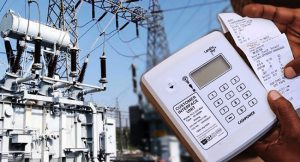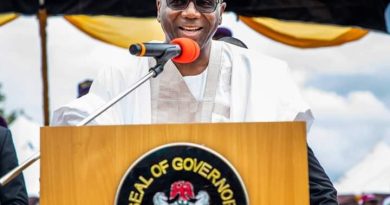Lights Going Out At Nigerian Universities Amidst Tariff Hike, Varsities In Desperate Search Of Alternatives

•As Reps order immediate reversal of electricity tariff Hike for Band ‘A’ consumers
The recent electricity tariff hike has dealt a severe blow to Nigerian public universities, leaving them grappling with exorbitant bills and forcing them to adopt drastic measures to cope.
The institutions are now rationing power, relying on generators, and considering hiking school fees, sparking concerns over the impact on academic activities and students’ welfare.
The House of Representatives on Tuesday directed the Nigerian Electricity Regulatory Commission (NERC) and Distribution Companies (DiSCOs) to immediately reverse the electricity tariff imposed on Band ‘A’ customers.
This decision was made after the adoption of the recommendations of the House Committee on Power, presented by Hon. Victor Nwokolo.
According to Nwokolo, “The Committee asked NERC and DiSCOs to revert to the old tariff as earlier contained in the motion of the House when it was considered.” He further stated that an independent team of experts should be consulted to investigate the actual cost of electricity tariff.
The House also recommended that the implementation of the tariff increase should be done in phases, not all at once. “In conclusion, the joint Committees is that the implementation of the tariff increase should be over a period of time, it should be in phases not what they have just done, it should be in phases,” Nwokolo said.
The reversal of the tariff hike is expected to bring relief to Band ‘A’ customers who have been burdened with the increased cost of electricity. The House has given NERC and DiSCOs 60 days to comply with the provisions of Section 116(2d), (3b), of the Act.
Recall that many tertiary institutions across Nigeria implemented significant fee hikes exceeding 150%, placing considerable financial strain on parents and guardians already grappling with a weakened economy that has diminished purchasing power and savings.
Reports revealed that public universities nationwide have been increasing mandatory fees since late last year, a trend continuing into the new academic session starting this January.
According to report, the University of Nigeria, Nsukka leads public universities in budget allocation with N36.6 billion, followed closely by the University of Calabar at N29.5 billion, and Ahmadu Bello University with N29.2 billion. Nnamdi Azikiwe University, Awka follows with N26.3 billion, while the University of Benin rounds out the top five with N24.2 billion.
Also included in the top 10 are the University of Ibadan at N23.4 billion, University of Maiduguri at N22.3 billion, University of Port Harcourt at N19.6 billion, University of Lagos at N19.4 billion, and Obafemi Awolowo University at N17.1 billion.
The high electricity tariff imposed by distribution companies (DisCos) has become a significant burden for these institutions, with many facing monthly bills ranging from N150 million to over N300 million.
This development has led to power rationing, generator dependence, and potential school fee hikes, causing anxiety among students, staff, and stakeholders.
In contrast, some private institutions like Covenant and Birmingham Universities have taken proactive measures by generating their power needs and even extending excess power to their host communities.
This approach is reminiscent of Stanford University in California, which played a pivotal role in fostering Silicon Valley’s growth.
Nigerian universities can draw inspiration from this model to develop innovative solutions to their electricity challenges.
The lights are going out at Nigerian universities, literally. The lack of electricity has forced institutions to ration power or rely on generators, disrupting academic activities and putting a strain on resources.
At the University of Benin’s health centre, the lights go out at 10 p.m. when the generators are switched off, leaving staff to fumble in the dark with torchlights.
Even strategic offices like the Academic Staff Union of Universities (ASUU) secretariat are not spared, relying on generators to keep the lights on.
The University of Ilorin is feeling the pinch, with its monthly electricity bill skyrocketing from N70m to N230m. The management is scrambling to find ways to reduce its spending on power, seeking alternative solutions to mitigate the impact of the hike in electricity tariffs imposed by the Ibadan Electricity Distribution Company (IBEDC).
Vice Chancellor Prof. Wahab Egbewole (SAN) describes the current electricity bill as “unsustainable” and is calling for a critical reassessment of current electricity usage practices. He’s appealing to staff and students to adopt more responsible electricity consumption habits and support the administration’s efforts to implement cost-saving measures.
In a bid to find a way out of the darkness, the university is incorporating alternative power sources into the design of new buildings and developing strategies to ensure all faculties and units have reliable alternative power options.
As Nigerian universities struggle with exorbitant electricity bills, the Managing Director of the Lower Niger River Basin Development Authority (LNRBDA), Engr Adeniyi Aremu, has emphasized the need for institutions to explore low-cost energy harvesting technologies.
Aremu, a former lecturer at the University of Ilorin’s Engineering Department, stressed that universities should tap into existing energy sources within their campuses to reduce electricity spending.
He recommended that Faculties of Engineering and Technology design smart power plants utilizing renewable energy sources like solar, hydropower, biomass, wind, and solid wastes. Aremu suggested a phased singular or hybrid approach to achieve this.
Meanwhile, the University of Port Harcourt is taking steps to address its electricity challenges, paying over N50 million monthly.
According to the university’s spokesman, Dr. Sam Kpenu, plans are underway to build a solar energy facility on campus. This initiative aims to reduce the institution’s reliance on traditional electricity sources and mitigate the financial burden of high electricity bills.
Kpenu said, “We pay no less than N50 million monthly on electricity bills. Plans are underway to build a solar energy village to end dependence on public power.
Fortunately, Uniport is a beneficiary of an independent power project in the South-South, funded by the federal government under a public-private partnership (PPP). Groundbreaking exercise has since commenced, and work is ongoing at the site.”
In Enugu, sources at the University of Nigeria, Nsukka (UNN) disclosed that the university paid the Enugu Electricity Distribution Company (EEDC) a monthly electricity bill of between N80 and N100 million during the old regime.
The source added that the university was yet to work out the real monthly bill in the new electricity regime but stated that the university would be paying over N150 million monthly in the new regime.
It was further gathered that the university, through its engineering department, had commenced moves to generate its own power.
The immediate past vice chancellor of UNN, Professor Charles Igwe had on several occasions lamented the huge monthly electricity bill brought to the institution.
Igwe had challenged the engineering department to provide alternative power, a development that made the department commence the move.
Robotic engineer Mark Ndukwe commended the University of Nigeria, Nsukka (UNN) engineering department for initiating self-power generation and encouraged other universities to follow suit.
Ndukwe emphasized that universities possess the expertise to generate power for themselves and their host communities.
Meanwhile, Abubakar Tafawa Balewa University (ATBU) in Bauchi is struggling to pay its monthly electricity bill, which has surged from N30 million in April to N55 million in June.
The university’s management is finding it challenging to settle the bill in full with Jos Electricity Distribution Company (JED).
Acting Vice Chancellor Professor Sani Kunya recently visited JED’s head office to negotiate a reduction in the bill.
ATBU’s Director of Public Relations, Zailani Bappa, expressed concerns about the university’s funding challenges, making it difficult to afford the monthly electricity bill.
He noted that alternative energy sources are also costly and appealed to the federal government and non-governmental organizations to support the university in developing its pilot solar energy power plant.
The students of the University of Ibadan (UI) last week protested the plan by the authorities to ration power.
Students at the University of Benin recently blocked a federal highway to protest prolonged power outages on campus. The Benin Electricity Distribution Company (BEDC) had disconnected the university due to a dispute over a monthly bill exceeding N250 million.
This disruption coincided with upcoming first semester examinations, prompting the students’ two-week demonstration.
Public universities across Nigeria are struggling with exorbitant electricity tariffs imposed by distribution companies (DisCos). Despite efforts to manage costs, recent tariff hikes have pushed many institutions, including the University of Benin, into financial distress.
Lilian Salami, the university’s vice-chancellor and chair of Nigerian universities’ vice-chancellors committee, cited a staggering increase from N80 million to N280 million in their electricity bill, worsening their financial woes.
Former University of Lagos vice-chancellor Oluwatoyin Ogundipe emphasised that current electricity costs are untenable for Nigerian public universities. In 2021, UNILAG faced a daunting N1.7 billion annual power bill, with only N150 million of the government’s promised subsidy received.
“As of last month, UNILAG’s electricity costs had further escalated to over N250 million per month,” he said. (Franktalknow)
===============
